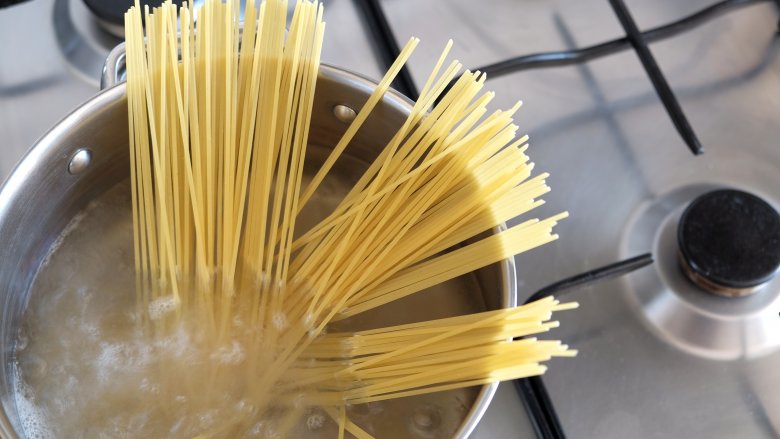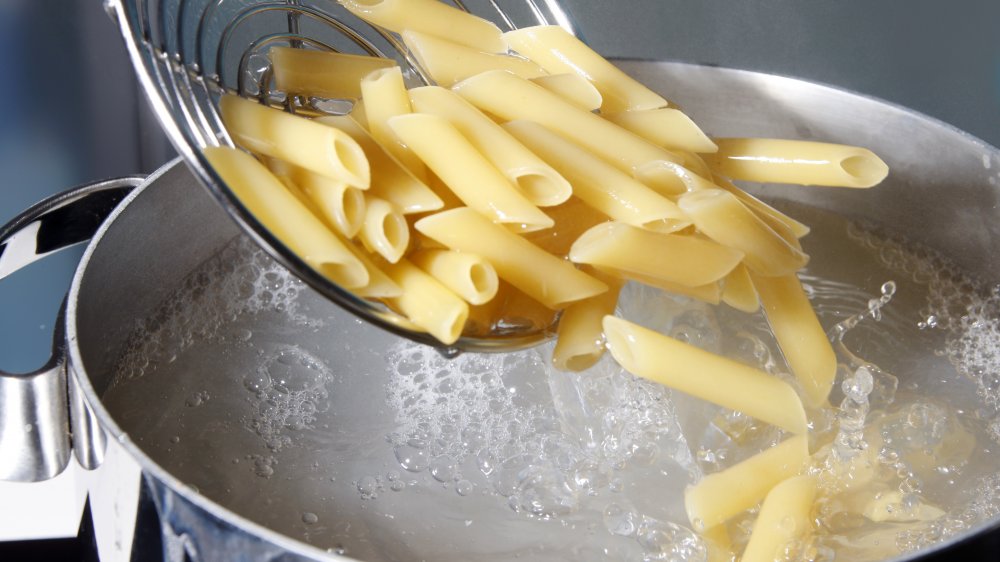How Much Salt Do You Really Need For Pasta Water?
Pasta is affordable, delicious, and can be made with everything from a simple tomato sauce to a variety of vegetables to a few hunks of hearty meat — but that doesn't mean figuring out how to cook it is easy. There's a lot of conflicting advice out there on even the most basic elements of cooking this basic dish, even when it comes to how much salt you need for your pasta water.
Most dried pasta at American grocery stores is made from flour and water. If you cook it in unsalted water, you wind up with bland, flavorless pasta. Sure, you can coat it in sauce, but for better flavor you should salt the water, so the pasta gets seasoned as it cooks (via Bon Appétit). But how much salt do you really need?
How much salt you need in pasta water
Some famous chefs, like Samin Nosrat (via Reddit) and Italian food expert Lidia Bastianich recommend making your pasta water as salty as the sea (via Today). But if you've ever choked down a mouthful of sea water after getting pushed under by a rogue wave, you know that the ocean is actually way, way saltier than anything we eat.
So why do so many chefs give out the same advice? No one really knows, though some surmise that it's because most people undersalt their food, and the ocean water guideline just encourages them to be more generous with salt than they otherwise would be. But you definitely shouldn't make your pasta water as salty as the ocean. That would require 2 tablespoons of table salt, or a 1/4 cup of fluffy Diamond Crystal kosher salt, per liter of water, for 3.5 percent salinity (via Lifehacker).
Instead, you should aim for about 1 percent salinity in your pasta water. That means about 1-1/2 teaspoons of table salt or fine sea salt per liter of water. Up that amount to 2 teaspoons if using Morton coarse kosher, and 1 tablespoon if using Diamond Crystal kosher (via Serious Eats).
That's just a starting point, of course, because every person has different taste preferences. You can go down to .5 percent salinity (3/4 teaspoons sea salt or 1-1/2 teaspoons Diamond Crystal per liter) or all the way up to 2 percent salinity (1 tablespoon sea salt or 2 tablespoons Diamond Crystal per liter of water) depending on what you like, and you might want to adjust the saltiness of the water based on what sort of sauce you'll be dressing your pasta in.
But unless you want to throw away your dinner, never make your pasta water as salty as the sea.

